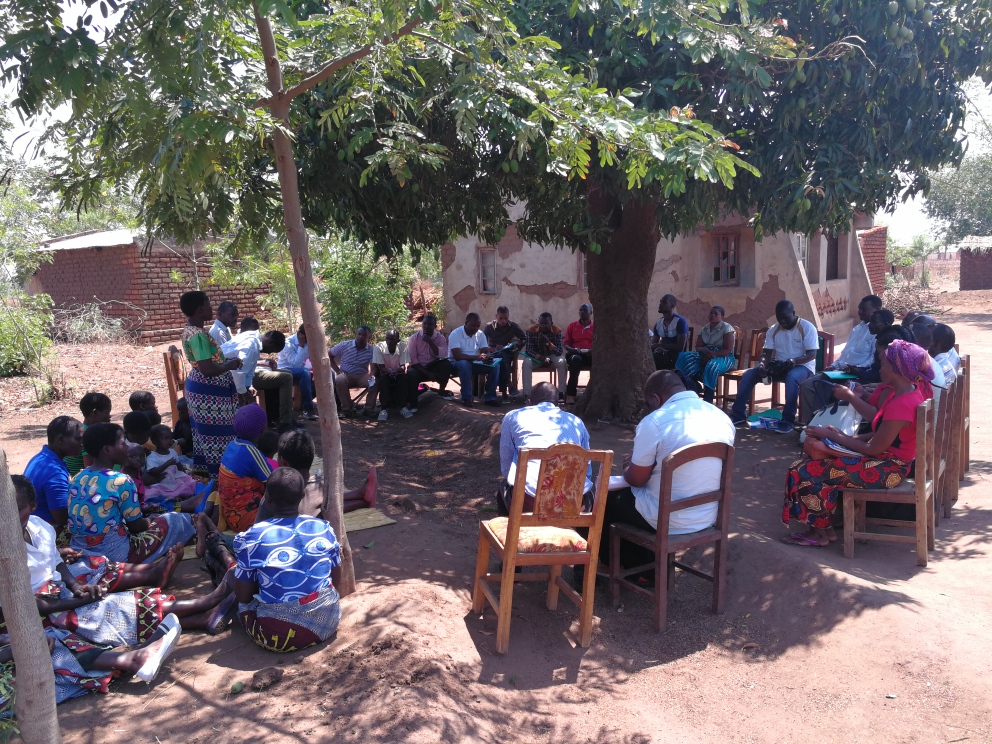Contact details:
Barbara Wieland (b.wieland@cgiar.org). Team leader herd health, International Livestock Research Institute (ILRI), Ethiopia.
Background
Community-based strategies have been increasingly recommended when implementing interventions directed to raise awareness about different health issues affecting communities, and promote a behavioural change amongst community members. These types of strategies are founded on the needs and concerns of community members, men and women, directly engaging the community in the research process. The CRP Livestock has successfully tested the use of community conversations as a gender transformative approach in small ruminant production systems, focussing on the division of labour and exposure risk to zoonoses for different household members.
Many communities in Ethiopia are engaged in animal production, as it is their main source of subsistence. In this regard, antimicrobial resistance (AMR) becomes an important issue as it threatens the ability of community members to care for their animals, and more importantly increases the risk of treatment failure in people.
It has been demonstrated that in many rural communities, women spend much of their time in livestock production, having a central role in caring for sick animals and their families and potentially play an important role in the decision-making process around use of antimicrobials in people and livestock. Given their roles and responsibilities in livestock keeping, it has been proposed that AMR in rural communities could exacerbate gender inequality, as women and girls may face a heavy burden as primary caregivers for family members and animals as a result of antimicrobial resistant infections.
Project overview
This research aims to increase community member awareness about how the misuse of antimicrobials in animal production can be harmful to the community’s health, and to understand the level of women’s participation in rational antimicrobial use (AMU) and the implications for gender relations in AMU and AMR. The ultimate goal is to induce a change in community attitudes, perceptions and practices towards rational use of antimicrobials.
For this activity, community conversations on AMU/AMR and related links of women’s involvement in agriculture and livestock production will be carried out in three sites: Menz (highland), Doyogena (midland) and Bonga (midland). Community conversations will be centred around three main topics: antimicrobial use in animal production, antimicrobial resistance, and women’s involvement in livestock production. Communities are invited to participate in meetings to encourage conversations and discussions and to document community members’ perceptions and attitudes about the use of antimicrobials. Knowledge, Attitude, Skills and Practice (KASP) baseline about AMU and AMR will be established by administering pre- and post-training KASP assessments, using a semi-structured questionnaire and level of use will be quantified and assessed with the AMUSE livestock tool. Checklists of observation of behavioural change will be developed. Storyboards will be used for capturing stories of changes at the household and community level. Monitoring of change will be done through repeated visits (at least 3 visits per community during the project).
Research impact
By increasing awareness of AMU and AMR and highlighting gender relations to these topics, we will contribute to reducing the use of antimicrobials and the burden of antimicrobial resistant infections, and promoting positive changes towards the role of women in agriculture in these communities. Moreover, we will propose research-based policy recommendations on how to improve the use of antimicrobials in rural communities.
Researchers
Barbara Wieland1, Annet Mulema1,Mamusha Lemma Woldegioris1,Wole Kinati2.
Institutions involved
- International Livestock Research Institute (ILRI).
- International Center for Agriculture in Dry Areas (ICARDA).
- Southern Agriculture Research Institute SARI, Ethiopia.
- Debre Birhan Agricultural Research Centre, Ethiopia.
Research Subject Area(s)
Gender, Human health, Public health, Animal Health, Antimicrobial Use (AMU), Antimicrobial Resistance (AMR)
Funding
o CGIAR research program on Livestock.
Relevant information
- Alemu, B., Desta, H., Alemayehu, G. and Wieland, B. 2017. Responsible use of antimicrobials in small ruminants. SmaRT Ethiopia intervention factsheet 22. Addis Ababa: ICARDA. Available at: https://cgspace.cgiar.org/bitstream/handle/10568/80954/Smart%20intervention22.pdf?sequence=1&isAllowed=y
- Lemma, M., Kinati, W., Mulema, A.A., Bassa, Z., Tigabe, A., Desta, H., Mekonnen, M. and Asfaw, T. 2018. Report of community conversations about gender roles in livestock. Nairobi, Kenya: ILRI. Available at: https://cgspace.cgiar.org/bitstream/handle/10568/99316/conversation_gender_roles.pdf?sequence=6&isAllowed=y
- World Bank, & FAO. (2016). World Feminization of Agriculture in the Context of Rural Transformations: What is the Evidence?Available at: http://documents.worldbank.org/curated/en/790991487093210959/pdf/ACS20815-WP-PUBLIC-Feminization-of-AgricultureWorld-BankFAO-FINAL.pdf
- Gemeda BA, Amenu K, Magnusson U, Dohoo I, Hallenberg GS, Alemayehu G, Desta H, Wieland B 2020. Antimicrobial Use in Extensive Smallholder Livestock Farming Systems in Ethiopia: Knowledge, Attitudes, and Practices of Livestock Keepers Front Vet Science.
- Alemu, B., Lemma, M., Magnusson, U., Wieland, B., Mekonnen, M. and Mulema, A. 2019. Community conversations on antimicrobial use and resistance in livestock. Nairobi, Kenya: ILRI
- Lemma, M., Alemu, B., Mekonnen, M. and Wieland, B. 2019. REPORT: Community conversations on antimicrobial use and resistance. Nairobi, Kenya: ILRI.
